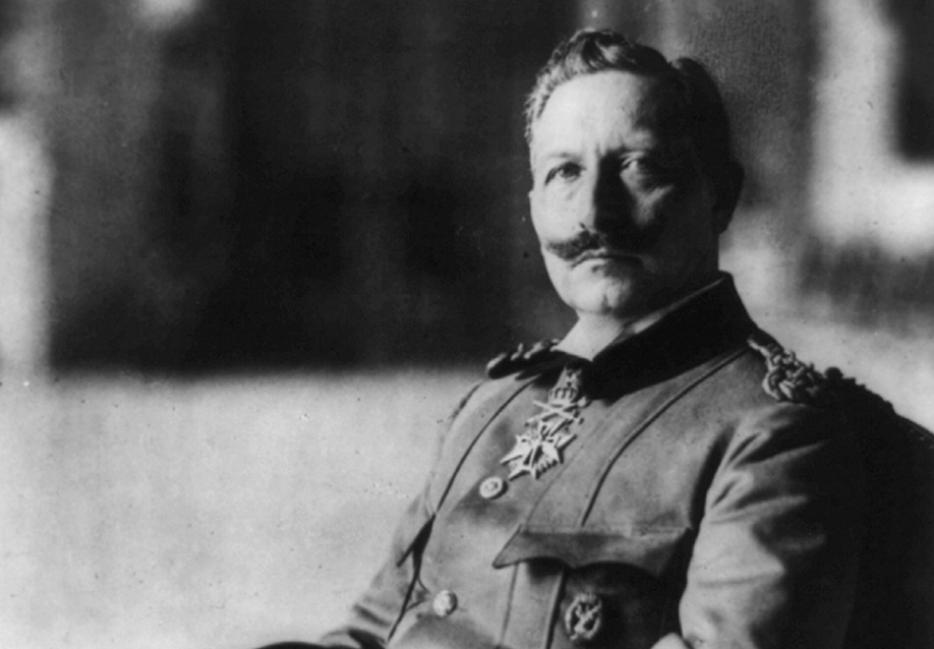If you've opened a newspaper, a news website, listened to news radio, or spared more than a passing glance at news television in the last few months, you may have gathered it's the centennial of the outbreak of World War I. Officially, Canada was at war by August 4, 1914, with the declaration of war by the British government against Germany. (In a historical oddity, the Austro-Hungarian Empire, whose spat with Serbia kicked the whole thing off, wouldn't get similar treatment for more than a week.) In reality, Europe had arguably already been tilting towards a general war for more than a month, since Germany's “blank check” telling Austria-Hungary they'd have Berlin's support to deal with those pesky Serbs however they chose.
The person who wrote that blank check, as much as any one person did, was the German Emperor Wilhelm II. According to The Sleepwalkers, Christopher Clark’s history of the years prior to the Great War, Wilhelm's reaction to the glowing embers of the crisis was to pour gasoline on them. When he learned that Germany's ambassador in Vienna was urging calm, Wilhelm was outraged, saying, “it was high time a clean sweep was made of the Serbs.”
Which isn't to absolve the Serbs of their own role in driving the wagon of western peace off a cliff—indeed, Clark's book is explicit about Serbia's part. What's interesting, though, is the role that divided governments across Europe played in aggravating the crisis. Wilhelm pushed his government down a road that cooler heads around him may not have; in Russia, the Foreign Minister pressed for a provocative mobilization that even the Czar may not have been as enthusiastic about (seeing as it was aimed at the throne of his cousin). Serbian intelligence had been acting basically independent of the nominal government for more than a decade, including plotting the assassination of Archduke Franz Ferdinand that was the immediate casus belli.
You might think the British and French at least were more unified, but Clark argues persuasively that crises kept being inflamed in Europe before the war, thanks to divisions between Germanophile and Germanophobe cliques within western governments, too. In the British case, divisions led to ambiguity over whether London would really go to war over the invasion of Belgium—a bet on which Germany lost badly.
Whether it was the ruling monarchs, the leaders of their governments, or their military and intelligence underlings, the governments of Europe in 1914 look, in hindsight, a lot less like monolithic obsessive camps bent on war and more like a half-dozen or so loosely-aligned gangs whose interests momentarily all intersected in one catastrophe.
That Europe's monarchies performed particularly poorly during the war years is, at this point, basically a bad joke: what did the German, Austrian, Russian, and Ottoman thrones have in common by 1919? None of them existed functionally anymore. These days, the widow of the heir to the Ottoman throne is reduced to trying not to get kicked out of her rent-controlled Manhattan apartment.
(It's hard to find a modern example of such a divided government jockeying for influence in foreign policy, but the one arguable example is just as tragic: Richard Nixon's 1968 gambit to scuttle the peace talks in Vietnam on the promise of better terms with a Republican in the White House. It's arguably Nixon's worst sin as a politician, which is saying something.)
At any given time, our governments are likely to be pursuing policies we disagree with. This last month has given plenty of ammunition to critics of Stephen Harper, for siding more closely with Israel than they'd like. But if the Prime Minister's total control over foreign policy—or, in the US, the Imperial Presidency—offend our sense that the government should represent the diversity of views within our country, the lessons of World War I suggest that we be careful what we wish for. Does anyone think relations with Russia would be much better right now if John McCain was making backroom moves against the White House's foreign policy, or that we could substantially improve affairs in the Middle East if John Boehner got involved?






